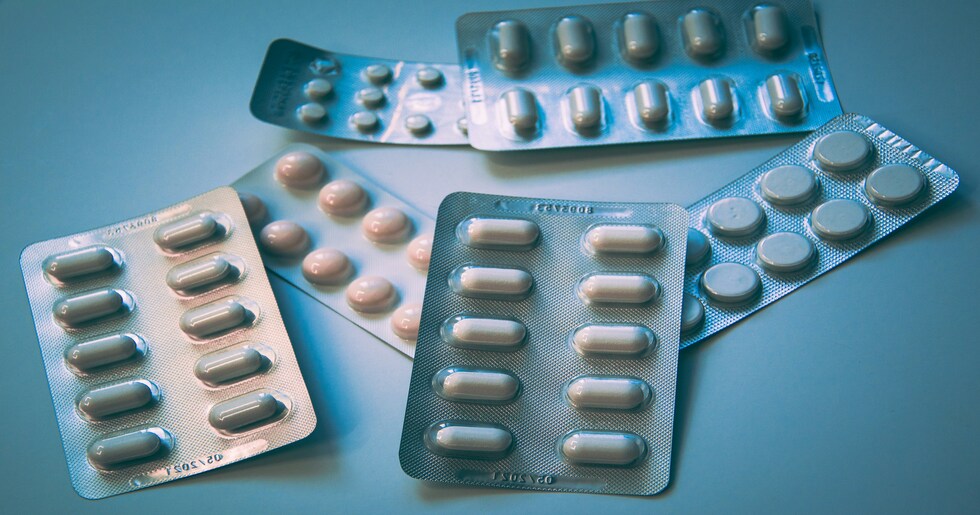Vitamins To Help Fight Depression: Real Mental Health Solutions
Published on September 11, 2024By Rosa D. (Contributor)
Contents


Millions, and I do mean millions of people around the world suffer from depression--depression in its truest form where a person is sad all day for long parts of every day; often awake at night and difficult to rouse each morning. Although professional intervention is necessary, numerous individuals use vitamins and other natural supplements to help balance the brain. One thing research has shown is that there are a few vitamins just as essential for our mental well-being consisting of brain feature. Taking the appropriate vitamins as well, and a healthy diet may stop some of those symptoms before they become troubling elements in your life.
Vitamins are important for the body to regulate mood and make neurotransmitters such as serotonin, which helps support brain function. Adding these types of vitamins to your regimen as part of a balanced, monitored diet can help mental strength when it comes with treatment in a natural way.
Vitamins that are Best for Depression
1. Vitamin D, the sunshine vitamin.
Vitamin-D: This is probably the most important vitamin for your mental health– it's even referred to as 'the sunshine vitamin', because our bodies make this when exposed to sunlight. Vitamin D deficiency has long been associated with depression, especially in folks who live where it is grey during the winter months and there isn't much sunshine. Vitamin D is a vitamin that regulates your mood and helps protect you from unhappiness.
People with depression, especially those who have seasonal affective disorder (SAD), are more likely to be low on vitamin D. Vitamin D supplementation may help increase mood and alleviate depressive symptoms during the winter season when there is less sunlight exposure [35]
Getting out in the sun for 15-30 minutes of play every day could go a long way to preventing low vitamin D levels. If not that, then vitamin D supplements are a decent option. Other major dietary sources include fatty fish, fortified dairy products and egg yolks.
2. B Vitamins: The Mood Boosters
B vitamins are essential for brain function and mental health, especially B6, B9 (folate), and B12. These vitamins will help the brain produce chemicals such as serotonin and dopamine, which can regulate mood and reasonably emotional stability. A lack of any one of these B vitamins can cause depression, fatigue and even cognitive trouble.
Vitamin B6 (Pyridoxine) which may facilitate the conversion of tryptophan to serotonin, an important neurotransmitter that plays a role in sleep and mood.
One of the biggest vitamin offenders in terms of your mental health is B9, or Folate; this handy lil' nutrient has a large role to play with mood regulation and low levels are linked to depression.
It is essential for the creation of energy and healthy nerve cells, so all serious runners will also make sure they are getting plenty in their diets. B12 is one of the common vitamins that people tend to be deficient in, especially as they get older — depression and fatigue occur.
You can get a lot of B vitamins in from fruits and vegetables: spinach, leafy greens, legumes [especially fresh or dried beans]; eggs; fish;and poultry. It is also found in supplements for those who struggle with getting these nutrients from the food they eat.
3. Vitamin C: The Antioxidant EPICENTER
We are all aware of how vitamin C works to strengthen our immune system, but it also contributes significantly towards maintaining a sound mental health. Because vitamin C acts as an antioxidant, it can help prevents the brain from oxidative stress that causes mood disorders such depression. Research indicates that low levels of vitamin C are related with increased fatigued as well and the potential for depression.
Vitamin C supplementation can also help reduce these symptoms and improve general mood. Vitamin C is a really common ingredient you can find in orange, strawberry bell pepper and broccoli everyday so having vitamin c won't be complicated.
4. Vitamin E: Health of Brain
Vitamin E is another strong antioxidant that support to brain protects against oxidative stress. Which which tie into cognitive function and overall brain health, two crucial factors for combating depression. Vitamin E deficiency is unlikely, but adequate intake of this nutrient may be beneficial for emotional health and might reduce cognitive decline in older populations.
Vitamin E can be found in various foods: nuts, seeds, spinach and broccoli are all good sources. You can also get it as a supplement, often with some other antioxidants for best effect.
5. Omega-3 Fatty Acids: Nourish Your Brain
Not a vitamin, omega-3 fatty acids are crucial to brain health and often discussed when considering natural remedies for depression. But the real Rockstar is omega-3s in fish oil which are essential for everything from healthy brain cell structure to neurotransmitter production. Multiple studies have shown that patients with depression often have lower omega-3 levels in their bloodstream.
There is evidence that taking omega-3 fatty acids — especially EPA (eicosapentaenoic acid) and DHA (docosahexaenoic acid)- can improve mood and help reduce depressive symptoms. Good sources of omega-3s include fatty fish, for example salmon, mackerel and sardines or capsules with fish oil.
How To Get These Vitamins Into Your Daily Schedule
Vitamins can be extremely beneficial when trying to deal with depression, but obviously they should not be the only way you treat your head. Here are some ideas to include these important nourishing ingredients in your day!
- Balanced Diet: Diversity of nutrient-rich foods helps the optimal functionStyleduring exercise. Eat rich in the vitamins above like fatty fish, leafy greens and nuts.
- Optionally use Supplements: If natural food sources isn't available you have to take some supplements that can help you substitute what is missing. Talk to your doctor for proper dosages and make sure, it will not interact with anything else you are on.
- Spend 15 minutes/day in the sunshine to encourage Vitamin-D production. If you live in a low-light area, load up on vitamin D in the winter.
- Final Thoughts: Keep yourself Hydrated, proper hydration is important for overall function of the brain. Keeping the flow of water intake during your day is a must to help with essential vitamin absorption and utility in supporting all that goes around inside your body.
As we reviewed, vitamins can be very effective in the battle against depression.
Vitamins in and of themselves may not be a cure all for depression, but they are an important dimension in taking care of mental health. Keeping your body well-nourished to support brain health can result in mood improvements and alleviation of symptoms, as means for general optimizing of all-around wellness. Using these vitamins in tandem with licensed physician advice, therapy and lifestyle modifications may assist those battling depression alleviate the symptoms.





